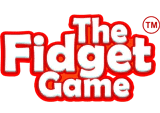6 Extra CVC Fidget M...
$19.99
$24.99
Save $5.00
Save $5.00
CVC Words Fidget Mats make learning to read fun and interactive for Pre-K to 1st graders! These 6 double-sided mats feature 50 CVC words, designed to pair perfectly with WORD POP! Ideal for classrooms or small groups, the mats boost reading skills through phonemic awareness games. Made from durable, non-toxic silicone, they’re flexible, easy to clean, and built to last—turning learning into a playful adventure!
Key Features:
Ages 5-7 (Kindergarten to Grade 1)
2-10 Players (or 1-on-1 Fun)
Quick & Easy Play (15 min)
Expected Results:
Learn letter sound blending
Master CVC words
Increase word recognition
Improve fluency
Pre-K & Kindergarten...
$11.11
$14.99
Save $3.88
Save $3.88
The Pre-K & Kindergarten Addition & Subtraction Card Pack helps children ages 3+ master early math skills through fun, interactive games. With 99 brightly illustrated cards, kids learn addition and subtraction facts up to 10. Designed for both individual and group play, these flashcards build essential math skills while boosting speed, accuracy, and confidence. Perfect for classrooms or on-the-go learning, this set is ideal for early learners.
Key Features:
2 to 6 players.
Ages 3-6 (Pre-K & K)
Quick and Easy Play (15 min Play)
Expected Results After 30 Days:
Master addition and subtraction facts up to 10 confidently.
Recognize and identify numbers quickly and accurately.
Improve speed and accuracy in solving basic math problems.
Build essential math skills through fun, engaging activities.
4 Extra Rainbow Fidg...
$14.99
$20.00
Save $5.01
Save $5.01
These Rainbow Fidget Mats are the perfect sensory tool for stress relief and fun! Made from durable, non-toxic silicone, these vibrant mats are flexible, easy to clean, and ideal for both kids and adults. Use them with our games for added excitement, or carry them on the go for portable stress relief. Whether in classrooms or at home, these fidget mats offer endless popping fun and relaxation. Perfect for all ages!Key Features:
Use it with our games (Add more players!)
Flexible & Durable (High-quality silicone)
Portable Stress Relief (Compact & fun)
Non-Toxic & Easy to Clean
Vibrant Rainbow Colors
Counting & Numbers C...
$9.99
$14.99
Save $5.00
Save $5.00
The Counting & Numbers Card Pack is a fun, tear-resistant set of 50 flashcards designed to help toddlers aged 3-4 learn numbers and counting from 1 to 20. Featuring colorful illustrations and two interactive ways to play, these flash cards build essential communication and math skills while fostering collaboration and problem-solving. Perfect for preschool or homeschooling, these cards encourage learning through play and boost speed, accuracy, and confidence in counting.
Key Features:
50 Flashcards (Durable & waterproof)
Learn Through Play (Fun & interactive learning)
Teacher-designed (Early learning essentials)
Bold Illustrations (Easy to see & fun!)
Expected Results After 30 Days:
Count confidently from 1 to 20 and recognize the number order.
Identify numbers and associate them with corresponding quantities.
Improve speed and accuracy in recalling numbers through repetition.
Build early math and communication skills in a fun, engaging way.
Hebrew WordPop!
$29.99
$34.99
Save $5.00
Save $5.00
Shoresh Pop! is a fun, interactive Hebrew reading game for kids from Grade 1 to 5. Players pop bubbles on fidget mats while mastering shorashim (roots) and expanding their Hebrew vocabulary. With three dynamic card decks, children practice reading, translating, and matching Hebrew words, turning learning into an exciting adventure.
Key Features:
From Grade 1 to 5
1-4 Players (or 1-on-1 Fun)
Quick & Easy Play (15 min)
Expected Results after 30 Days!
Enhances Hebrew Root Recognition
Expands Hebrew Vocabulary
Reads Simple Sentences in Hebrew
Key Takeaways:

How To Choose The Right Educational Games For Your Toddler
Importance Of Phonics And Cognitive Skill Development
Are there learning games that can be played outdoors?
How do learning games for toddlers differ from those for older children?
What should I do if my toddler loses interest in a learning game?
How can learning games be used to support bilingual education for toddlers?
Can learning games help toddlers with special needs?































